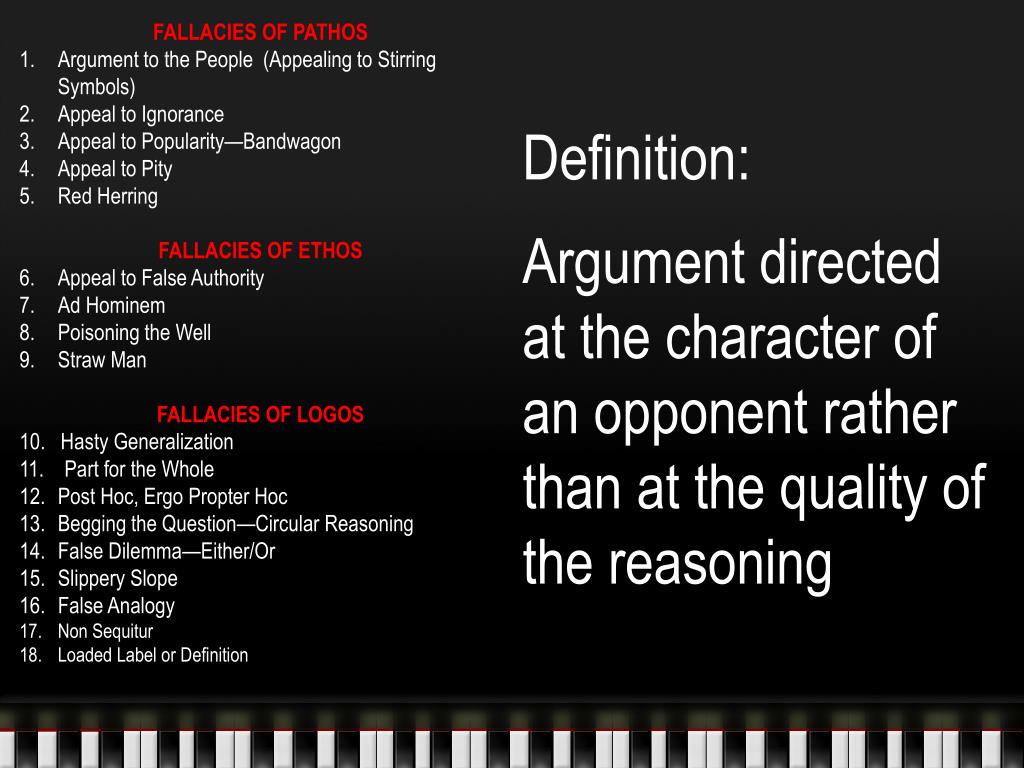

Verbal leaves the office after completing the story, and only then does one detective realize that most of the names and details from Verbal’s story are found within the office itself, and therefore are all red herrings.
#RED HERRING FALLACY IN MOVIES MOVIE#
As the movie goes on, the story becomes more complicated both for the detectives and for the viewers. He tells a story to detectives about what happened on the night of an explosion. The Usual Suspects: This 1995 movie features Kevin Spacey as the crippled, reclusive Roger “Verbal” Kint. Straw man: Misrepresenting an opponent’s stance in order to refute that false argument and create the illusion that one has defeated the opponent.Bandwagon Effect: Asserting that something must be true because everyone says that it is true.Post Hoc Ergo Propter Hoc (also known as Post Hoc): Identifying false causality, basing a conclusion solely on the chronology of events.Either-Or Fallacy: Creating a false dichotomy to oversimplify a situation.Non Sequitur: Making a jump in logic so that there is no connective tissue from one statement to the next.Ad Hominem Attacks: Insulting someone’s character to undermine that person, instead of focusing on the strength of the person’s arguments.There are several other examples of intentional informal fallacies: The definition of red herring when used in literature, however, is that it is intentional. In the real world, a red herring may be unintentional (for example, any evidence in a real detective case that later proves to be irrelevant). Thus, even if the evidence is true, and therefore the logic is sound, the reasoning that connects the evidence with the conclusion is faulty. An informal fallacy will often include irrelevant evidence to persuade a reader or listener to believe a false conclusion. While a formal fallacy contains a flaw in logic, an informal fallacy is an argument that often contains a flaw in reasoning. The phrase was later borrowed to provide a formal name for the logical fallacy and literary device.Red herrings are an example of an informal fallacy. Conventional wisdom has long supposed it to be the use of a kipper to train hounds to follow a scent, or to divert them from the correct route when hunting however, modern linguistic research suggests that the term was probably invented in 1807 by English polemicist William Cobbett, referring to one occasion on which he had supposedly used a kipper to divert hounds from chasing a hare, and was never an actual practice of hunters. The origin of the expression is not known. A red herring might be intentionally used, such as in mystery fiction or as part of a rhetorical strategy, or it could be inadvertently used during argumentation as a result of poor logic. It may be either a logical fallacy or a literary device that leads readers or characters towards a false conclusion.

Red herring The idiom " red herring" is used to refer to something that misleads or distracts from the relevant or important issue.


 0 kommentar(er)
0 kommentar(er)
